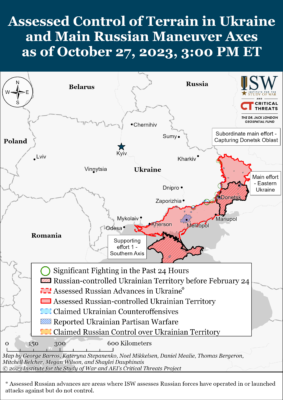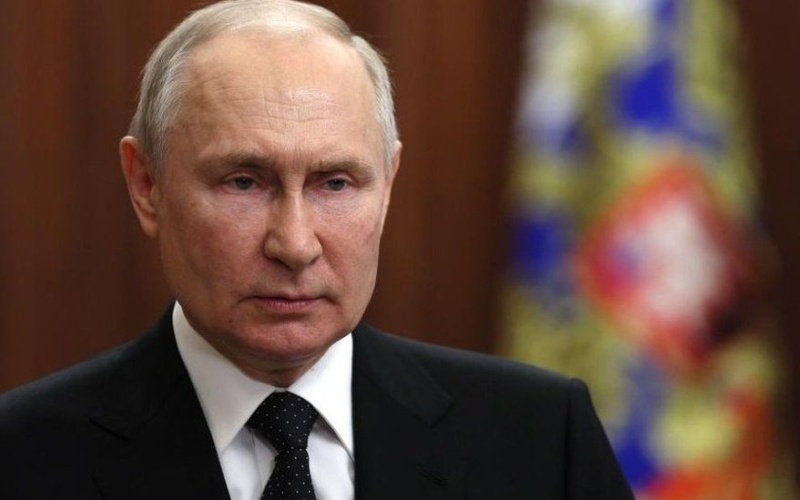Russia leader Vladimir Putin
See also Friday’s Coverage: US and Denmark Announce New Military Aid Packages for Kyiv

UPDATE 1034 GMT:
A Moscow court has sentenced physicist Anatoly Gubanov to 12 years in a penal colony on treason charges.
Gubanov, 66, is a specialist in hypersonic development. He is the former head of the Aerodynamics of Aircrafts and Rockets Department at the Moscow region’s Central Aerohydrodynamic Institute.
The physicist was detained in December 2020 and accused of passing secret hypersonic development materials to colleagues from the Netherlands. He collaborated with the Dutch scientists on the HEXAFLY-INT, the world’s first civil hypersonic airliner.
Gubanov pleaded guilty and asked the judge for a penalty below the minimum sentence of 12 years. The request was denied.
In June, Gubanov’s colleague Valery Golubkin, 70, was also condemned to 12 years in prison.
The Perviy Otdel human rights project said the reports passed by Gubanov and Golubkin to their Dutch colleagues were examined by three specialized commissions prior to submission. None of the commissions found any state secrets.
UPDATE 0959 GMT:
A battalion composed of Ukrainian prisoners of war has joined a Russian military unit and will soon be deployed to the frontline in Ukraine, says Russian State outlet RIA Novosti.
The battalion’s purported commander, Andrii Tyshchenko, said the group was created in February in the Russian-occupied area of the Donetsk region in eastern Ukraine. He said about 70 POWs were “recruited”.
Coercion of POWs into combat violates the Geneva Convention on Prisoners of War, which stipulates that “no prisoner of war may at any time be sent to or detained in areas where he may be exposed to the fire of the combat zone”.
RIA claims the POWs joined the formation “voluntarily, having accepted Russian citizenship”.
UPDATE 0956 GMT:
The Ukraine Air Force says air defenses downed three of four Iskander cruise missiles fired by Russia overnight on the Dnipropetrovsk region in south-central Ukraine.
The air force said the remaining missile did not reach its target. No casualties were reported.
UPDATE 0619 GMT:
Russian attacks on the Kherson region in southern Ukraine have injured eight civilians since Friday evening.
Seven residents of central Kherson were wounded and more than a dozen houses damaged or destroyed last night.
This morning, in a Russian attack from the left bank of the Dnipro River an 80-year-old woman sustained head injuries. Shelling caused multiple explosions and fires, damaging homes.
UPDATE 0612 GMT:
Germany has delivered another package of military assistance to Ukraine.
The support included an IRIS-T SLM air defense system, the third Berlin has supplied, and missiles; ammunition for MARS II multiple launch rocket systems; four armored personnel carriers; TRML-4D air surveillance radar; eight VECTOR reconnaissance drones; four GO12 ground surveillance radars; and five surface drones.
ORIGINAL ENTRY: The international pressure on Russia’s economy, over Vladimir Putin’s 20-month invasion of Ukraine, has been highlighted by a rise in the key interest rate to 15% amid a surge in inflation.
Since July, the Russian Central has order four increases, doubling the key interest rate. Friday’s action lifted the rate by 3%, following an emergency rise to 12% in August after the rouble sank to its lowest point since the early days of the invasion.
The Bank said in its statement:
Current inflationary pressures have significantly increased to a level above the Bank of Russia’s expectations.
Steadily rising domestic demand is increasingly exceeding the capabilities to expand the production of goods and the provision of services. Inflation expectations remain elevated. Lending growth paces are invariably high.
The announcement came only a day after Russian legislators approved a 68% increase in military spending for 2024.
Russia is now devoting almost a third of its Government expenditure to the military. The Kremlin is channeling 6% of GDP —
10.8 trillion roubles ($112 billion) v. 6.4 trillion rubles ($67 billion) previously allocated for 2023 — into the armed forces.


Trackbacks/Pingbacks